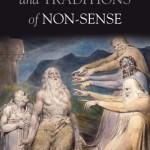We run our website the way we wished the whole internet worked: we provide high quality original content with no ads. We are funded solely by your direct support. Please consider supporting this project.
From Boston, With Love
We posted some of T. C. Moore’s reflections on the Open 2013 conference earlier this week. T. C. lives in Boston and was deeply moved by the violence and terror that came to his city. Now we want to share his most recent blog post Oz and the Cross: Reflections on God’s Love and the Boston Marathon Bombings. In our rage and grief it’s all too easy to frame this tragedy as the “evil other” attacking the “righteous us.” But this is not the way of Jesus. We challenge you to sit with T. C.’s piece and view the recent bombings and the victims and perpetrators through a lens that moves us to prayer and peacemaking rather than revenge and self-righteousness. Can we view these events and confess, “God, have mercy on me, a sinner.”?
From T. C.’s blog:
Contrasting ourselves with an evil other does not produce the wholeness of God’s loving reign (shalom). Setting ourselves up against those who are trapped in sin, have succumb to a spirit of violence and death, does not magically make us the peculiar people who reflect God’s love. Instead, the only way for us to become the embodiment of God’s loving reign, is to model our love after the love of God demonstrated on Jesus’s cross: a love that prays for its murderer’s forgiveness. In Jesus’s death and life, he modeled a love that identified with those who were wounded, as well as those who were stigmatized—even with violent Zealots. The Apostle Paul, himself a violent murderer, was transformed by God’s love and called to herald the glorious Gospel of God’s Kingdom among the Gentiles. That’s the power of God’s love that is at work in this Jesus movement we call the Church!
Category: General
Tags: Boston Bombings, Cruciform Theology, Forgiveness, Jesus, Mercy, Peacemaking, T.C. Moore
Related Reading

God of Sense and Traditions of Non-Sense
As the title suggests, in his book, God’s Problem: How The Bible Fails to Answer Our Most Important Question – Why We Suffer, Bart Ehrman argues that the Bible has nothing compelling to say about the problem of evil. Well, I just put down a beautifully written four-hundred and fifty page book that compellingly argues…

9 Things That Are True of Us When We’re Saved
Image by rAmmoRRison via Flickr The New Testament has many amazing things to say about who we are as believers because of what Christ has done for us. When the Lord saves us, he doesn’t just rescue us from eternal death; he gives us a completely new identity. Consider what happens to us when the Father…

Reflecting on the Lord’s Prayer
Jesus begins the instruction on prayer (Matthew 6:9-13) by telling his disciples to pray for the Father’s name to be “hallowed,” for his kingdom to come, and for his will to be established on earth as it is in heaven. He is, in effect, telling them to pray for the fulfillment of everything his ministry,…

Unpacking Revelation: Is it Literal?
According to many scholars as well as many Christian laypeople, the Jesus we find in the book of Revelation engages in a great deal of violence. This violence reaches a zenith in chapter 19 where we find Jesus going out to make war on a white horse (v. 11). He is dressed in a blood…

A Brief Theology of the Trinity
“The economic Trinity is the immanent Trinity, and the immanent Trinity is the economic Trinity.” This is the maxim introduced by the Catholic theologian Karl Rahner that should shape our discussion of the Trinity. It is simply a short-hand way of saying that since the way God is toward us in Christ truly reveals God,…


